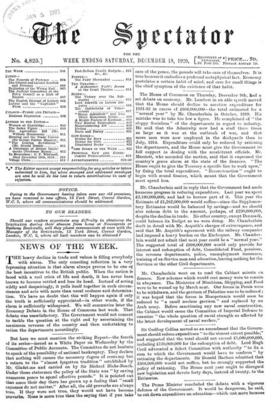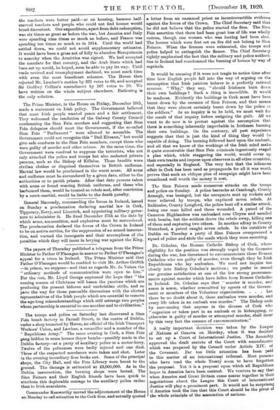The Prime Minister concluded the debate with a vigorous defence
of the Government. It would be dangerous, he said, to cut down expenditure on education—which cost more because
the teachers were better paid—or on housing, because half- starved teachers and people who could not find houses would breed discontent. Our expenditure, apart from debt redemption, was six times as great as before the war, but America and Italy were spending nine times- as much as before, and France was spending ten times as much as in 1914. Until the world had settled down, we could not avoid supplementary estimates. It would have been, a gross act of folly to abandon Mesopotamia to anarchy when the Armistice was signed. We had accepted the mandate for that country, and the Arab State which had been set up. would, he hoped, soon be able to pay its way. Until trade revived and unemployment declined, we must mark time with even the most beneficent schemes. The House then rejected Mr. Lambert's motion by 321 votes to 66, and accepted Sir Godfrey Collins's amendment by 307 votes to 30. We have written on the whole subject elsewhere. Rationing is the only solution.







































 Previous page
Previous page